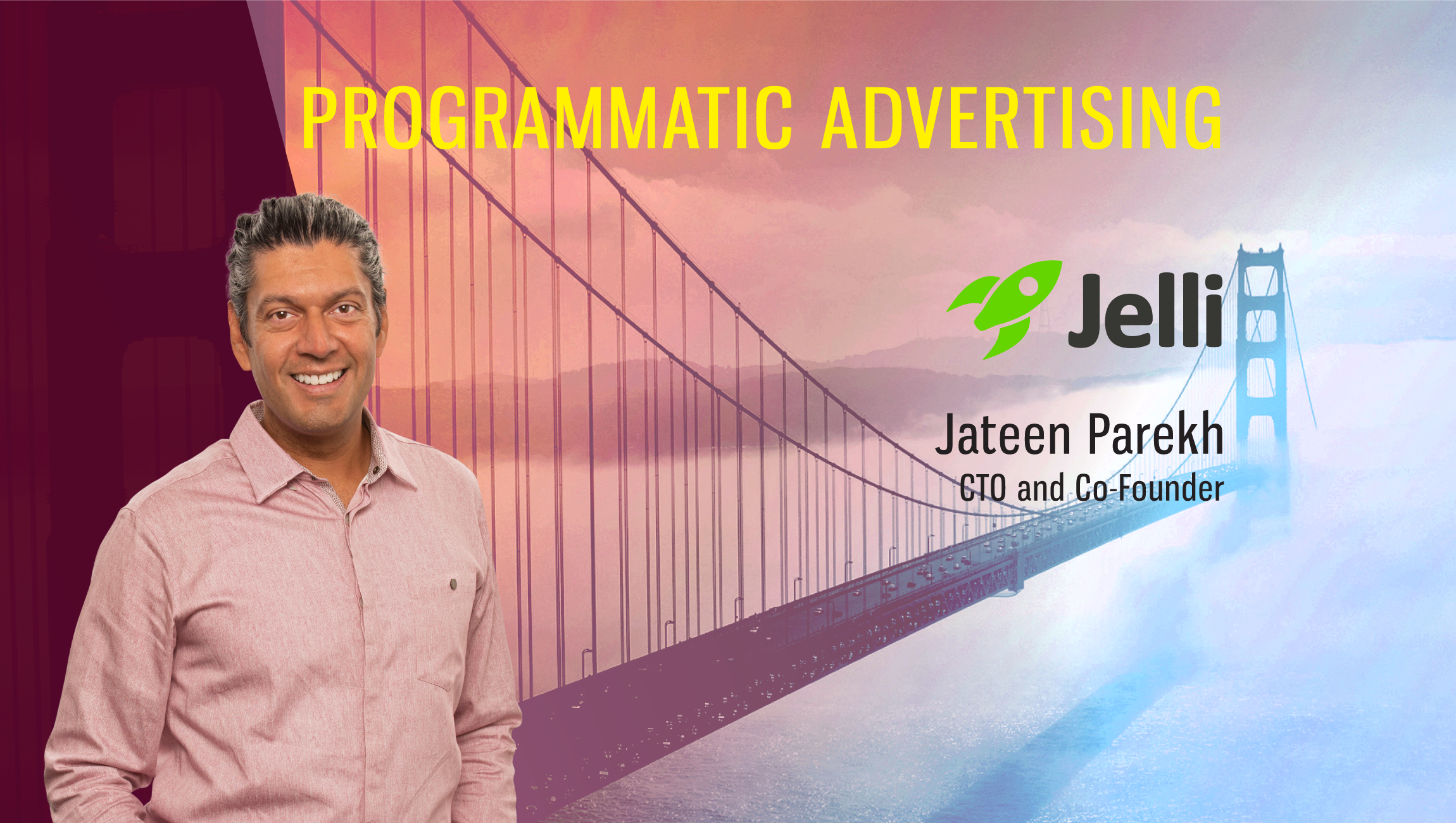Jateen Parekh
CTO and Co-Founder, Jelli
How has programmatic changed the radio business? Jateen Parekh, CTO and Co-Founder, Jelli, chats about his journey into programmatic advertising, and what made him focus on audio industry.
Html code here! Replace this with any non empty text and that's it.
Tell us about your role at Jelli?
I help define the company’s internal strategy for Jelli’s technology to make sure it aligns with our business and industry goals. My job entails communicating the technical aspects of our platform to our external partners and customers so they get a better understanding of the benefits we have to offer. I also set the company’s overall internal technology direction — evaluating new technologies to make sure we are using technological tools well, and ensuring we have the right processes in place to be successful.
Tell us about your journey into programmatic. What made you focus on audio?
The radio industry has always been massive but has a history of being underserviced. We saw a huge opportunity early on to disrupt radio by bringing ad operations into the digital age.
Before Jelli, advertisers had been flying blind for decades with no knowledge of whether their ads were running, let alone, how they were performing. This was when we realized how big the market was; it was ours for the taking.
Fast forward to today, we are still the only platform for buying and selling radio ads. Our platform reaches 270M+ listeners monthly and serves billions of ad impressions per year. We partner with the biggest broadcasters in the US including iHeartRadio, Entercom, Cumulus and more to make this all happen.
How has programmatic changed the radio business?
The change in radio has been dramatic. As I stated previously, advertisers and brands had no visibility into what was happening with their ads before Jelli. Not only that, but all the planning was being done manually and by phone. This process was extremely inefficient and time consuming.
Programmatic has removed those bottlenecks and created a digital way to do all your campaign buying, planning, and measurement.
We’re just getting started. With streaming gaining momentum and voice showing promise, the sky’s the limit.
Why is data so important in your business? And how does data help advertisers measure the success of their campaigns?
Data is important in every business. Knowing more about your customer and attributing a campaign to a purchase is the “holy grail” for marketers. Data is essential to making this connection.
Why should all advertisers use programmatic to buy radio ads today?
Absolutely. In addition to efficiencies and better targeting, advertisers can learn what works best for their brand and products. Not all advertisers are the same, so programmatic can yield different benefits for different advertisers.
Is radio more brand-safe than digital? Why?
Radio is better managed than digital, making it is easier to provide data around programming to protect brands. Over time, digital will also have the right categorization and detection technologies in place for brand protection. We will see this really come together in the future.
What are some challenges the radio/audio industry face today?
Overcoming legacy and business challenges to really push innovation. There is so much innovation that can be done in audio, but it takes forward thinking leaders to be willing to take risks and push the big ideas.
Are brands doing most of the radio ad buying? Or are they outsourcing their programmatic to agencies?
It’s a mix. I don’t expect large brands to abandon their agencies, and they will rely on those agencies to migrate them to programmatic solutions. In-house teams from small to large brands will also find they have a need for direct programmatic buying for a variety of reasons.
There are clear pros and cons to both in-housing and outsourcing. We’re finding that many brands are finding great success with hybrid models.
Do you see the use of programmatic increasing in the coming years?
Without a doubt! eMarketer predicts that more than $46 billion will go to programmatic advertising in the US this year alone. By 2020, 86.2% of all digital display ads will be bought via automated channels.
What are some breakthrough technologies in audio that you think will have a massive impact on advertising over the next decade?
Interactive platforms enabled by voice speakers and connected cars will have a massive impact on advertising. We are already seeing early signs of this with Alexa, Google Home and other AI devices.
Tag a person from the industry whose answers you would like to see in this section
Thanks for chatting with us, Jateen.
Stay tuned for more insights on marketing technologies. To participate in our Tech Bytes program, email us at news@martechseries-67ee47.ingress-bonde.easywp.com











